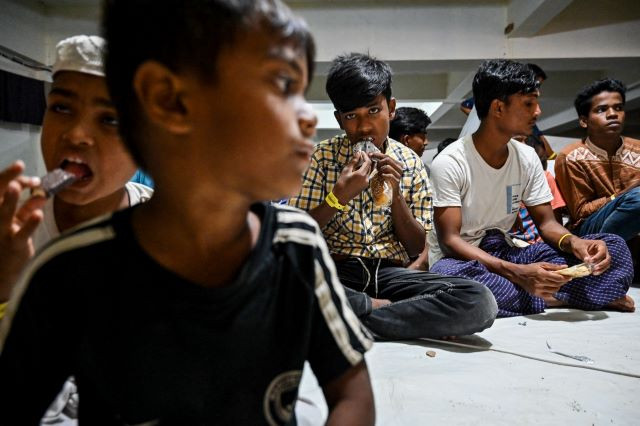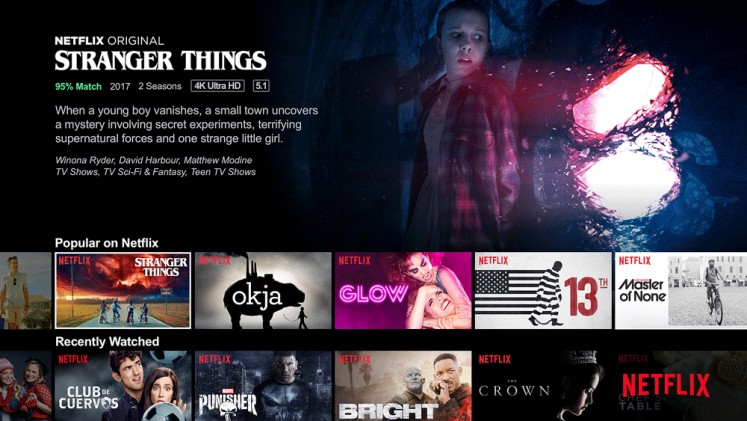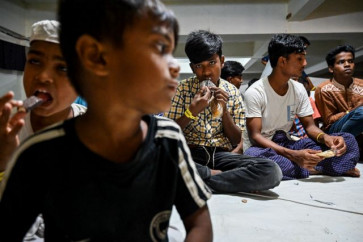Popular Reads
Top Results
Can't find what you're looking for?
View all search resultsPopular Reads
Top Results
Can't find what you're looking for?
View all search resultsHuman rights at risk: Hate campaign against the Rohingya
Several government officials have taken a firm stance, advocating for the repatriation of the Rohingya refugees to their places of origin and emphasizing their temporary welcome.
Change text size
Gift Premium Articles
to Anyone
 Manna from ulema: Rohingya children eat food donated by the Aceh Ulema Council (MPU) on Dec. 30, 2023, at a temporary shelter in the basement of a government building in Banda Aceh, after they were forced to move on Dec. 27 when hundreds of university students protested against their presence at a previous location. (AFP/Chaideer Mahyuddin)
Manna from ulema: Rohingya children eat food donated by the Aceh Ulema Council (MPU) on Dec. 30, 2023, at a temporary shelter in the basement of a government building in Banda Aceh, after they were forced to move on Dec. 27 when hundreds of university students protested against their presence at a previous location. (AFP/Chaideer Mahyuddin)
I
n a disturbing incident, university students stormed a shelter in Banda Aceh that was housing Rohingya refugees, primarily women and children. Shocking online footage showed students aggressively shouting "expel the Rohingya", kicking belongings and forcing refugees onto trucks to move them to a government building.
The reprehensible actions culminated in the students jubilantly chanting and dancing in celebration. In its statement following the incident, United Nations High Commissioner for Refugees (UNCHR) Indonesia found that this was “the result of a coordinated online campaign of misinformation, disinformation and hate speech against refugees”. Similarly, a local human rights organization observed that the students invoked hate narratives found on social media as reasons of their protest.
Indeed, in recent months, Indonesian internet users have been inundated with harmful content targeting the Rohingya refugees across various social media platforms and news articles. The refugees have been portrayed as immoral, ungrateful, criminal and unclean, and therefore undeserving of help. Alarmingly, some content explicitly advocates violence with a poster urging people to “step on the heads” of the Rohingya.
While some of these narratives may be rooted in factual information, they are often presented in a manner that dehumanizes the entire refugee population and justifies their mistreatment. Moreover, certain narratives are completely fabricated, designed to further cast doubt on the refugees’ morality and undermine the work of the UNHCR and other aid workers.
The use of digital technologies to spread misinformation, disinformation and hate speech (MDH) online is a growing phenomenon that has resulted in a human cost. It can influence social and political dynamics by amplifying division in the society, and increasing hatred, persecution and violence toward the target population. This is evident in various instances of MDH, such as those targeting several ethnic groups in Ethiopia, Muslim and Christian communities in Sri Lanka and the Rohingya people in Myanmar.
Tragically, the Rohingya have previously fallen victim to MDH in their home country, which – based on UN findings – contributed to hostility and discrimination against them.
MDH typically entails manipulative tactics to shape the public opinion of a certain group of people. It aims to harness psychological weaknesses or violent tendencies within a population and increase intra or inter-group tensions. These practices have significant human rights implications.


















